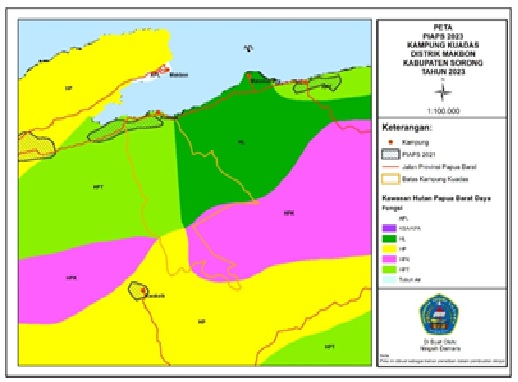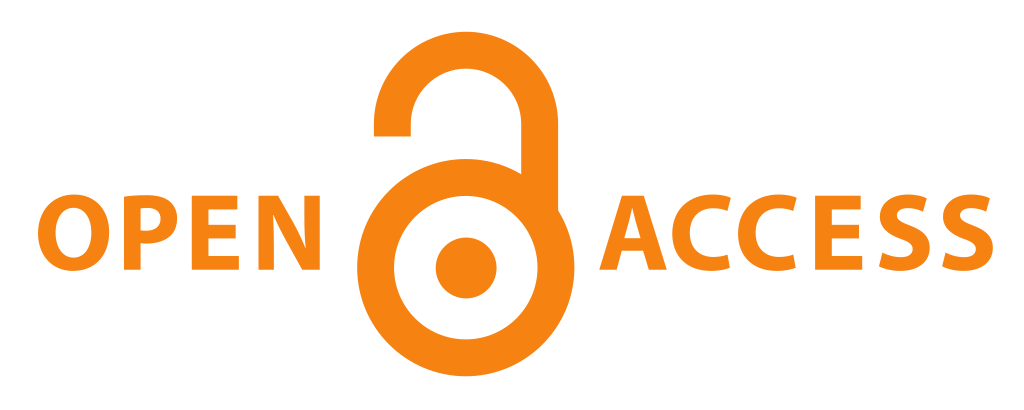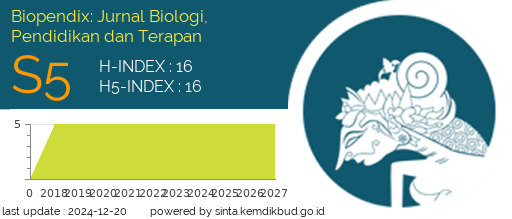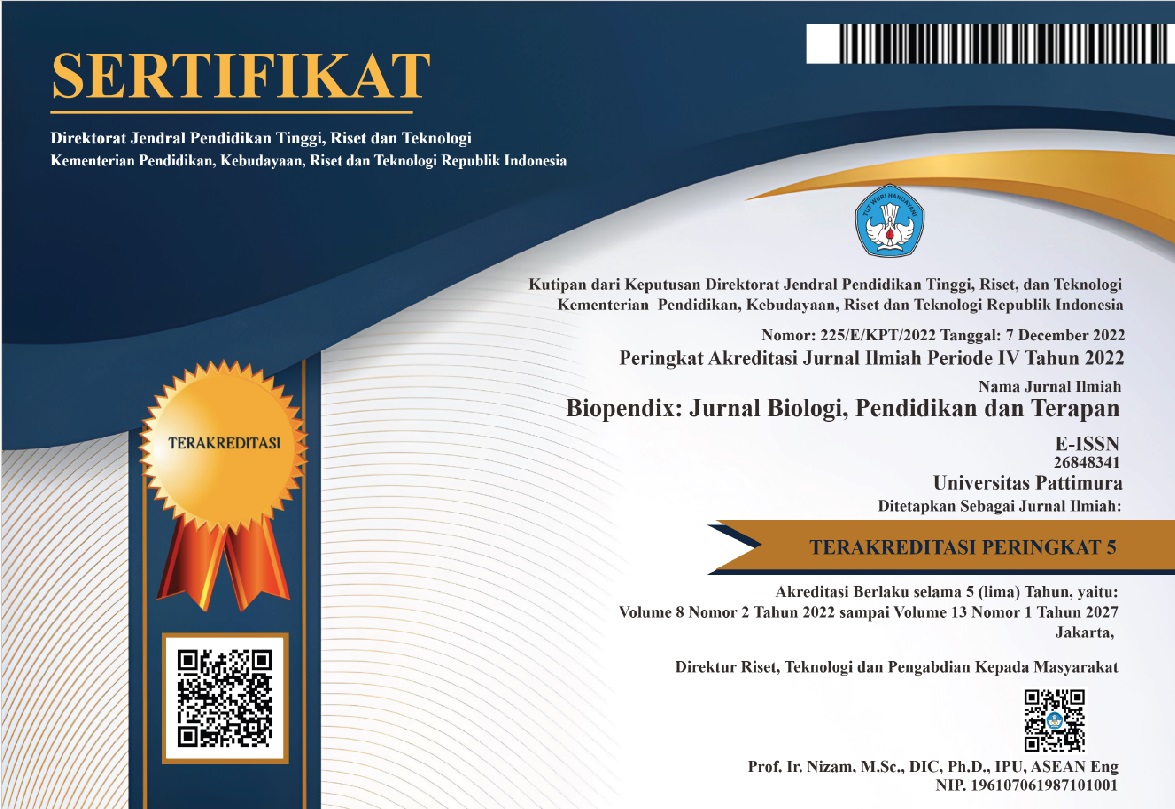PERSEPSI MASYARAKAT TERHADAP PENGAJUAN PERHUTANAN SOSIAL SKEMA HUTAN DESA DI KAMPUNG KUADAS KECAMATAN MAKBON KABUPATEN SORONG
Abstract
Background : Kuadas Village, located in Sorong Regency, is one of the villages selected by the Forest Area Management (KPH) of Sorong Regency through the Social Forestry Indicative Map (PIAPS) created by the Social Forestry and Environmental Partnership Center (BPSKL). It is proposed under the social forestry program with a village forest scheme and is currently facilitated by the NGO (Non-Governmental Organization) Fauna Flora Indonesia Program in the submission of the Social Forestry Village Forest Scheme. However, the issues faced by the surrounding village communities are usually related to social and economic aspects in managing the forest.
Method: The researcher used 46 respondents as samples and conducted the study from June to July 2023 in Kuadas Village, Makbon District, Sorong Regency, using the Saturated Sampling technique. The data obtained were analyzed using the Likert Scale.
Results: Three perception aspects were assessed, namely the Utilization and Level of Dependence on Forest Resources, Forest Sustainability, and Perception of Social Forestry. After calculating with the Likert Scale formula, it was found that the aspect of Social Forestry Perception received the highest score with a total of 1.175 and a percentage of 87.7%.
Conclusion: The development of knowledge about community perceptions regarding the submission of the Social Forestry Village Forest Scheme can provide valuable information for readers, such as the village or others.
Downloads
References
Firdaus, A.Y.2018. Panduan Praktis Penerapan Kebijakan Perhutanan Sosial Kerangka Pencepatan Reformasi Tenurial Hutan. Pusat Penelitian Kehutanan Internasional (CIFOR).
Forestry Studi Club (FSC). 1 Juli 2018. Perhutanan Sosial Untuk Kesejahteraan Masyarakat Desa Hutan https://fsc.fkt.ugm.ac.id/perhutanan-sosial-untuk-kesejahteraan-masyarakat-desa-hutan/ (Diakses tanggal 28 Jnauari 2024).
Kementerian Lingkungan Hidup dan Kehutanan.2020.Rencana Strategis Tahun 2020-2024.
Munasinghe, M. 1993. Environmental Economics and Sustainable Development. World Bank Environment Paper Number 3. The World Bank. Washington D.C.
Nature Ilustrasi 2021 https://www.kompasiana.com /618c6deaf (Diakses tanggal 30 Januari 2024)
Nura Isa. 2015. Persepsi Masyarakat Terhadap Hutan Kemasyarakatan di Desa Gunung Silanu Kecamatan Bangkala Kabupaten Jeneponto. Skripsi. Program Studi Kehutanan Fakultas Pertanian Universitas Muhammadiyah Makassar
Peraturan Presiden RI Nomor 28 Tahun 2023 tentang Perencanaan Terpadu Percepatan Pengelolaan Perhutanan Sosial.
Puspitojati, T.2011. Persoalan Definisi Hutan dan Hasil Hutan dalam Hubungannya dengan Pengembangan HHBK Melalui Hutan Tanaman. Jurnal Analisis Kebijakan Kehutanan. Vol. 8 No. 3 ; 210-227.
Sudrajat,A.S.E.2018. Pilar Pembangunan Berkelanjutan : Kajian Pengelolaan Sumber Daya Alam dan Lingkungan Kampung Batik Rejomulyo Semarang Timur. Jurnal Riptek Vol. 12, No. 1; 83-88.
Undang-Undang Republik Indonesia Nomor 19 Tahun 2004 Tentang Penetapan Peraturan Pemerintah Pengganti Undang-Undang Nomor 1 Tahun 2004 Tentang Perubahan Atas Undang-Undang Nomor 41 Tahun 1999 Tentang Kehutanan Menjadi Undang-Undang.
Undang-Undang Republik Indonesia Nomor 18 tahun 2013 tentang Pencegahan dan Pemberantasan Perusakan Hutan.
Undang-Undang Republik Indonesia Nomor 11 Tahun 2020 tentang Cipta Kerja.

Authors who publish with this Journal agree to the following terms:
- Author retain copyright and grant the journal right of first publication with the work simultaneously licensed under a creative commons attribution license that allow others to share the work within an acknowledgement of the work’s authorship and initial publication of this journal.
- Authors are able to enter into separate, additional contractual arrangement for the non-exclusive distribution of the journal’s published version of the work (e.g. acknowledgement of its initial publication in this journal).
- Authors are permitted and encouraged to post their work online (e.g. in institutional repositories or on their websites) prior to and during the submission process, as it can lead to productive exchanges, as well as earlier and greater citation of published works




 2
2






